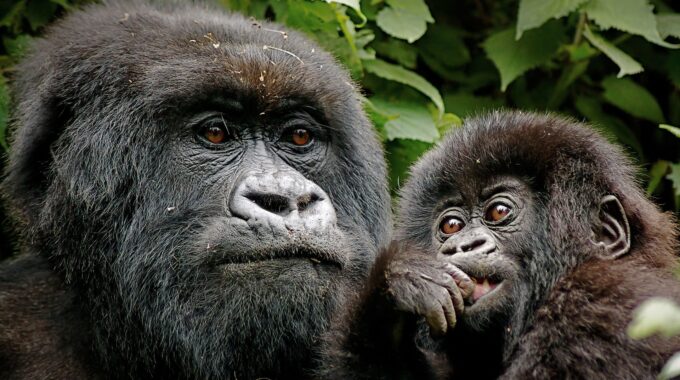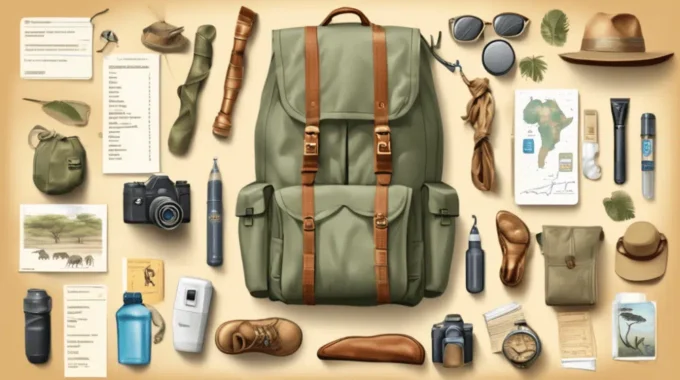How to Combine Gorilla Trekking in Rwanda with Safari in Tanzania Gorilla trekking in Rwanda:…
Which is safer Uganda or Rwanda?
Which is safer Uganda or Rwanda? –
Which is safer Uganda or Rwanda? When considering safety for travel or living in East Africa, Uganda and Rwanda often come up as two popular destinations. Both countries have unique attributes that influence their safety levels. Below is a detailed comparison based on various aspects of safety.

1. Political Stability
- Rwanda: Rwanda is widely regarded as one of the most politically stable countries in Africa. Since the end of the 1994 genocide, the government under President Paul Kagame has maintained a strong grip on security and development. The country has low crime rates, efficient law enforcement, and a well-organized government. Political protests are rare, and the environment is generally calm.
- Uganda: Uganda has experienced political challenges, including allegations of election-related violence and political unrest, particularly during election periods. President Yoweri Museveni’s long tenure has been marked by some instances of political dissent and suppression. However, outside of political hotspots, daily life in Uganda is generally stable.
2. Crime Levels
- Rwanda: Crime rates in Rwanda are exceptionally low. The government prioritizes law and order, and the streets are considered safe even at night. Petty crimes such as pickpocketing are rare, and violent crimes are almost unheard of.
- Uganda: Uganda is relatively safe, but petty crimes such as pickpocketing, phone snatching, and theft are more common in urban areas like Kampala. Violent crimes are not frequent, but travelers are advised to exercise caution, particularly at night or in less populated areas.
3. Natural Disasters and Environmental Safety
- Rwanda: Rwanda has minimal exposure to natural disasters. While it is located in a seismically active region near the Great Rift Valley, earthquakes are infrequent and usually minor. The country’s infrastructure is well-prepared for its terrain and weather conditions.
- Uganda: Uganda is also in a tectonic region but is more prone to flooding, landslides, and droughts in certain areas. Additionally, diseases like malaria are a concern in both countries but can be more prevalent in Uganda due to its larger size and diverse climates.
4. Healthcare and Disease Prevention
- Rwanda: Rwanda has made significant advancements in healthcare. The country has a universal health coverage system, and its focus on public health has reduced the prevalence of diseases. Malaria is present but under control in most areas.
- Uganda: Uganda has robust healthcare services in major cities, but rural areas may have limited access. Malaria and other tropical diseases are more prevalent, requiring travelers to take precautions such as vaccinations and prophylactic medication.
5. Transportation Safety
- Rwanda: Rwanda’s infrastructure is well-developed, with well-paved roads and strict traffic regulations. Public transportation, including buses and motorbike taxis (locally known as motos), is organized and relatively safe.
- Uganda: Transportation in Uganda can be more chaotic. Roads in rural areas may be poorly maintained, and traffic laws are not always strictly enforced. Motorbike taxis (boda-bodas) are popular but can be risky due to high accident rates.
6. Wildlife and Adventure Safety
- Rwanda: Gorilla trekking in Volcanoes National Park is one of Rwanda’s main attractions. The government enforces strict guidelines to ensure safety for tourists and the wildlife. Rangers are highly trained, and risks during wildlife encounters are minimal.
- Uganda: Uganda offers a wider range of wildlife experiences, including gorilla trekking, chimpanzee trekking, and safaris in national parks. While generally safe, encounters with wildlife can pose risks, and precautions are necessary, especially during activities like rafting on the Nile or exploring remote areas.
7. Cultural and Social Dynamics
- Rwanda: Rwandans are known for their politeness and respect for rules. The government actively promotes unity and discourages any form of division or discrimination. Cultural misunderstandings are less likely to result in conflict.
- Uganda: Ugandans are warm and friendly, but the larger population and cultural diversity can sometimes lead to localized misunderstandings. Foreigners are generally welcomed but should be mindful of social norms, particularly in conservative areas.
8. Terrorism Threat
- Rwanda: The risk of terrorism in Rwanda is very low. The country’s strict security measures and relative isolation from regional conflicts contribute to its safety.
- Uganda: Uganda has a slightly higher risk due to its involvement in regional peacekeeping missions and proximity to conflict-prone areas. Occasional incidents related to terrorism have been reported, though they are rare and not typically directed at tourists.
Conclusion
Which is safer, Uganda or Rwanda? Both Uganda and Rwanda are relatively safe for travelers and residents, but Rwanda has a slight edge due to its low crime rates, political stability, and well-organized infrastructure. Uganda offers a broader range of activities and attractions but requires more caution in certain areas, particularly regarding petty crime and transportation safety.
For tourists seeking a hassle-free experience with minimal safety concerns, Rwanda is the better choice. For those looking for diverse adventures and are willing to take extra precautions, Uganda offers an enriching experience. Ultimately, the choice depends on individual preferences and the type of experience desired.



